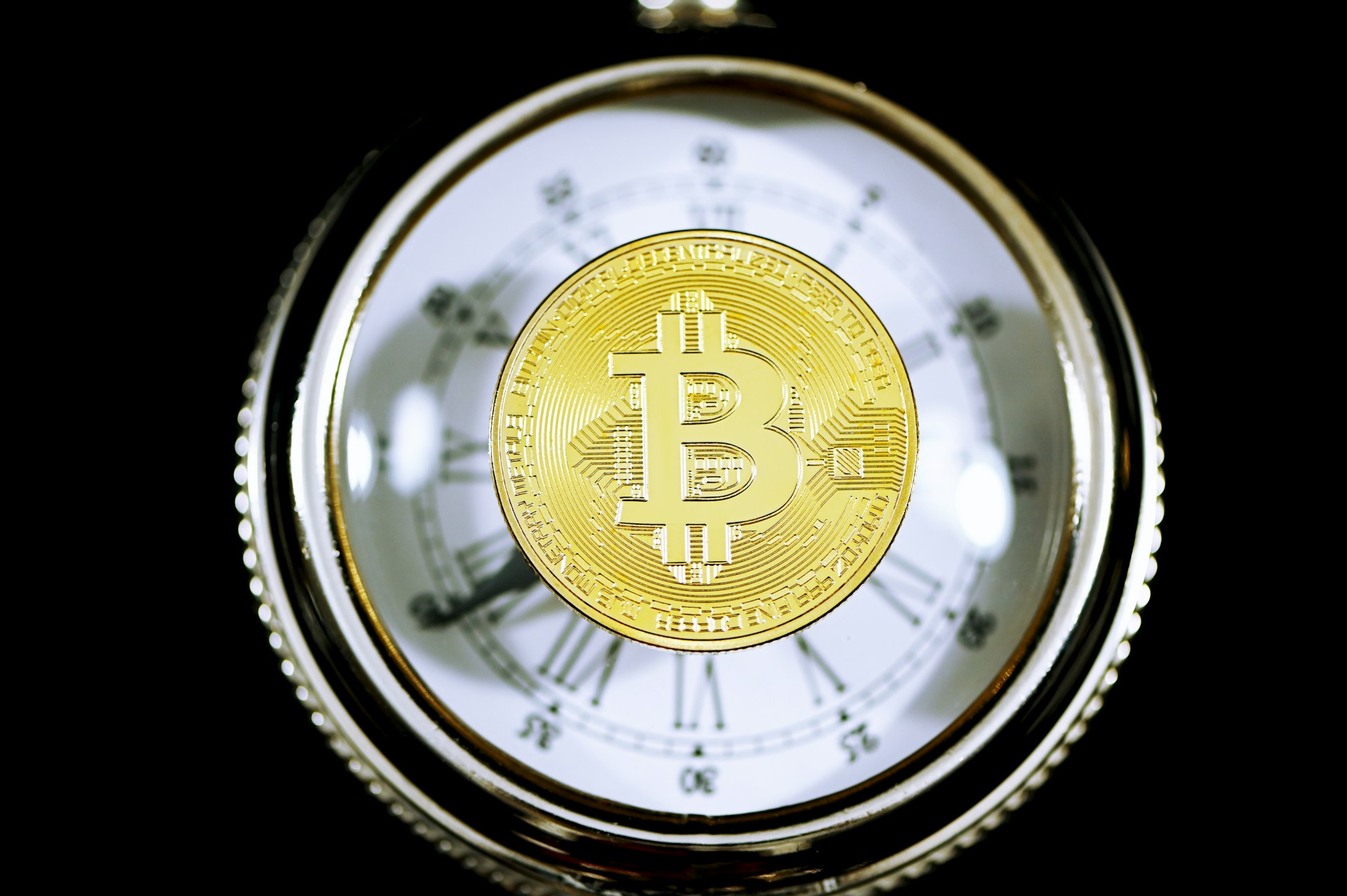A Quarter of S&P 500 Companies Will Own Bitcoin by 2030

Elliot Chun Predicts 25% of S&P 500 Companies Will Own Bitcoin by 2030
In recent years, Bitcoin has transitioned from being viewed as a speculative digital asset to a legitimate store of value and treasury reserve asset.
This shift has been driven by increasing institutional adoption, macroeconomic uncertainties, and the growing recognition of Bitcoin's ability to hedge against inflation.
One of the most striking predictions about this trend comes from Elliot Chun, a prominent analyst in the cryptocurrency space.
According to Chun, by 2030, one-quarter of all companies listed on the S&P 500 index will include Bitcoin in their corporate treasuries.
This bold forecast raises several questions:
Why are companies increasingly considering Bitcoin?
What drives top executives to take such a risk?
And how does this trend align with broader financial strategies?
Let’s delve into the factors behind Chun’s prediction and explore what it means for the future of corporate finance.
This shift has been driven by increasing institutional adoption, macroeconomic uncertainties, and the growing recognition of Bitcoin's ability to hedge against inflation.
One of the most striking predictions about this trend comes from Elliot Chun, a prominent analyst in the cryptocurrency space.
According to Chun, by 2030, one-quarter of all companies listed on the S&P 500 index will include Bitcoin in their corporate treasuries.
This bold forecast raises several questions:
Why are companies increasingly considering Bitcoin?
What drives top executives to take such a risk?
And how does this trend align with broader financial strategies?
Let’s delve into the factors behind Chun’s prediction and explore what it means for the future of corporate finance.

A Quarter of S&P 500 Companies Will Own Bitcoin by 2030
The Fear of Missing Out (FOMO) Among Corporate Leaders
One of the primary reasons driving companies toward Bitcoin adoption is the fear of missing out (FOMO). In today’s hyper-competitive business environment, corporate leaders face immense pressure to deliver innovative solutions and maximize shareholder value. As Elliot Chun explained, “Success makes you a hero, failure is excused as an attempt, but inaction risks your job.”For many executives, experimenting with Bitcoin represents a calculated gamble. If the investment succeeds, they are celebrated as visionaries who capitalized on a transformative asset. If it fails, they can justify their decision as an exploratory effort aimed at staying ahead of market trends. However, failing to act altogether could lead to criticism or even termination if competitors gain an edge through early adoption.
This mindset has led to a surge in interest among corporate managers who view Bitcoin not just as an investment but as a strategic tool for enhancing their company’s competitive positioning.
Bitcoin as a Treasury Reserve Asset
Traditionally, companies have relied on cash, government bonds, or other low-risk assets to manage their treasury reserves. However, the unprecedented monetary policies implemented during the COVID-19 pandemic—such as massive stimulus packages and quantitative easing—have raised concerns about the long-term stability of fiat currencies. Central banks around the world have printed trillions of dollars, leading to fears of inflation and currency devaluation.In this context, Bitcoin has emerged as an attractive alternative for corporate treasuries. Proponents argue that Bitcoin’s fixed supply cap of 21 million coins makes it inherently deflationary, providing protection against inflation. Additionally, its decentralized nature ensures independence from traditional financial systems, making it less vulnerable to geopolitical risks.
MicroStrategy, a business intelligence firm, became the poster child for this strategy when it began purchasing Bitcoin in 2020. Under the leadership of CEO Michael Saylor, the company allocated a significant portion of its treasury to Bitcoin, amassing over 150,000 BTC. Since then, MicroStrategy’s stock price has skyrocketed by more than 2,000%, demonstrating the potential upside of adopting Bitcoin as a treasury reserve asset.
Growing Adoption Across Industries
MicroStrategy’s success has inspired other companies to follow suit. According to data compiled by industry analysts, over 90 publicly traded companies now hold Bitcoin in their treasury reserves. These firms span various sectors, including technology, finance, energy, and retail, highlighting the versatility of Bitcoin as a corporate asset.GameStop, a household name in the gaming industry, recently made headlines by announcing plans to raise $1.3 billion through bond issuance specifically to purchase Bitcoin. This move underscores the growing acceptance of Bitcoin as a viable treasury asset, even among companies outside the tech sector.
However, while the number of Bitcoin-holding companies continues to grow, replicating MicroStrategy’s success is no easy feat. The emergence of Bitcoin exchange-traded funds (ETFs) has leveled the playing field, reducing the unique advantages once enjoyed by early adopters. Nevertheless, for corporate treasury managers, taking action remains preferable to standing idle in a rapidly evolving financial landscape.
Challenges and Risks of Corporate Bitcoin Adoption
Despite its potential benefits, incorporating Bitcoin into corporate treasuries is not without challenges. Regulatory uncertainty remains a significant hurdle, as governments worldwide grapple with how to classify and regulate cryptocurrencies. For example, stricter regulations could limit the appeal of Bitcoin as a treasury asset or impose additional compliance costs on companies.Volatility is another concern. While Bitcoin’s price has historically trended upward, it remains highly volatile in the short term. A sudden downturn could result in substantial losses for companies holding large amounts of Bitcoin. To mitigate this risk, some firms diversify their holdings across multiple assets, combining Bitcoin with stablecoins or traditional reserves.
Security is also a critical consideration. Safeguarding private keys and protecting against cyberattacks require robust infrastructure and expertise. Companies must invest in secure storage solutions and partner with reputable custodians to ensure the safety of their Bitcoin holdings.
Finally, there is the reputational risk associated with adopting a controversial asset like Bitcoin. Critics argue that Bitcoin’s environmental impact—due to its energy-intensive mining process—and association with illicit activities make it unsuitable for corporate use. Companies must carefully weigh these concerns against the potential rewards before committing to Bitcoin adoption.
While achieving 25% adoption by 2030 will require overcoming significant obstacles, the momentum behind Bitcoin suggests that Chun’s prediction is within reach.
As we approach 2030, the integration of Bitcoin into corporate treasuries will likely become increasingly normalized. Whether driven by necessity, opportunity, or competitive pressure, the rise of Bitcoin as a mainstream corporate asset marks a pivotal moment in the evolution of global finance. For investors, executives, and enthusiasts alike, the journey promises to be both exciting and transformative.
#Bitcoin #CorporateFinance #S&P500
Why 25% of S&P 500 Companies Could Own Bitcoin by 2030
Elliot Chun’s prediction that 25% of S&P 500 companies will own Bitcoin by 2030 seems ambitious but plausible given current trends. Several factors support this outlook:- Increasing Institutional Interest: Large financial institutions, such as BlackRock and Fidelity, are already offering Bitcoin-related products and services. Their involvement lends credibility to Bitcoin and encourages smaller firms to follow suit.
- Macroeconomic Uncertainty: Persistent inflation, geopolitical tensions, and mounting national debt are likely to drive more companies to seek alternatives to traditional reserves.
- Technological Advancements: Improvements in blockchain technology and custody solutions are making it easier for corporations to integrate Bitcoin into their operations securely and efficiently.
- Competitive Pressure: As more companies adopt Bitcoin, others will feel compelled to do the same to avoid falling behind.
- Generational Shifts: Younger executives and board members, who tend to be more open-minded about cryptocurrencies, are gradually assuming leadership roles within organizations.
While achieving 25% adoption by 2030 will require overcoming significant obstacles, the momentum behind Bitcoin suggests that Chun’s prediction is within reach.
Conclusion: The Future of Corporate Treasuries
Elliot Chun’s projection highlights a paradigm shift in how companies approach treasury management. By embracing Bitcoin, corporations are not only diversifying their reserves but also positioning themselves at the forefront of a financial revolution. While challenges remain, the potential rewards—ranging from hedging against inflation to unlocking new revenue streams—are too compelling to ignore.As we approach 2030, the integration of Bitcoin into corporate treasuries will likely become increasingly normalized. Whether driven by necessity, opportunity, or competitive pressure, the rise of Bitcoin as a mainstream corporate asset marks a pivotal moment in the evolution of global finance. For investors, executives, and enthusiasts alike, the journey promises to be both exciting and transformative.
#Bitcoin #CorporateFinance #S&P500














Report
My comments